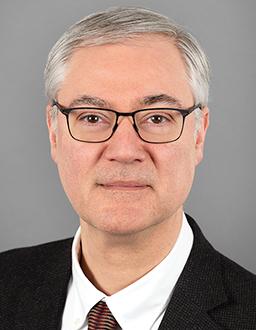Pediatric Neurocritical Care Fellowship | Neurology Track
Learn more about the Boston Children’s Hospital Neurocritical Care Program.
Location of the fellowship activities
- Boston Children’s Hospital (primary affiliation)
- Mass General Brigham (for adult neurointensive care)
Duration
12 months
Prerequisites
Applicants must hold a MD or DO degree, must have verification of good standing from the candidate’s institution, must be board-certified or eligible in Pediatric Critical Care Medicine as defined by the American Board of Pediatrics or Neurology with special qualification in Child Neurology as defined by the American Board of Psychiatry and Neurology (equivalent certification for physicians trained outside of the United States will be considered on a case by case basis), and must be eligible for a medical license in Massachusetts. A strong interest in clinical and basic science research and prior publications are encouraged.
Clinical training
The goal of this clinical training program is to provide fellows with the skills to become experts in the recognition, evaluation, and management of critically ill children with acute and severe injuries involving the nervous system. The core components of the clinical education consists of:
- Evaluating patients with acute neurological and neurosurgical complications who are admitted to the medical, surgical, and cardiac intensive care units at Boston Children’s Hospital, comprising nearly 150 ICU beds
- Developing advanced expertise in neuroimaging and neuromonitoring, including point-of-care neuroultrasound (transcranial Doppler and carotid studies), conventional and quantitative EEG, pupillometry, near infrared spectroscopy and surface electromyography
- Select rotations in adult neurocritical care (at Massachusetts General Hospital and Brigham and Women’s Hospital), the Boston Children’s Stroke and Cerebrovascular Center, ICU EEG, epilepsy surgery, neuroradiology, neurointerventional radiology, neurosurgery, and rehabilitation medicine.
Core competencies:
- Physical examination skills to elicit the diagnosis of a neurological emergency
- Knowledge of the differential diagnoses for the various clinical presentations of acute and severe disorders involving the nervous system
- Knowledge of the appropriate investigations and management of neurological emergencies (including cerebrovascular accidents, and refractory and super-refractory status epilepticus), and other acute and severe disorders involving the nervous system
- Knowledge of basic principles and practices of cerebral resuscitation, and appropriate and timely treatment of neurocritical care conditions
- Pharmacology of commonly used medications for the treatment of acute disorders involving the nervous system
- Expertise in the interpretation of various neuromonitoring modalities with exposure to technology, development, regulatory, and safety aspects
- Expertise in counseling patients and families regarding neuroprognostication and outcomes
- Pre- and post-operative care of patients undergoing cardiac surgery, epilepsy surgery, and management of implanted devices (vagal nerve stimulation, deep brain stimulation)
- Skills to evaluate the clinical literature relevant to pediatric neurocritical care and clinical trial design
- Skills in the didactic teaching of neurocritical care conditions and neuromonitoring tools
- Skills to pursue an academic career in the field of pediatric neurocritical care
Academic core
A faculty advisor will be assigned to help guide clinical training, research, and overall career development. Trainees are able to participate in academic lectures and conferences in the Department of Neurology and Division of Critical Care Medicine offered at Boston Children’s Hospital relating to pediatric neurocritical care. Didactic sessions include weekly case conferences, monthly neurocritical care core topic conferences, quarterly Multidisciplinary Neurocritical Care Conference, and monthly Neurocritical Care RECAP (Reviewing Educational and Challenging Acute Patients). Participation in educational activities offered through Boston Children’s Hospital, the Pediatric Neurocritical Care Research Group (PNCRG), and the Neurocritical Care Society (NCS) are encouraged.
Research
Research opportunities and scientific training will be provided through the faculty of the Boston Children’s Neurocritical Care Program. Fellows are expected to complete a research project at the intersection of critical care and neurology, and to publish and present their results to a scientific audience.
Application process
The application should consist of:
- Cover letter
- Personal statement (1 page)
- Curriculum vitae
- List of publications
- Two letters of recommendation
- Copies of USMLE parts 1, 2, and 3; LMCC (if applicable); ECFMG certification (if applicable)
- Visa status (if not a citizen/permanent resident of the U.S.)
Applications should be submitted as a single PDF document to pncf@childrens.harvard.edu by June 1 the year prior to starting (e.g., June 1, 2025, for the July 1, 2026, start date). After submitting the application, candidates may be invited to meet in person or via remote interviews with members of the selection committee in the spring/early summer. Letters of acceptance will be issued on Offer Day, around mid-October.
Accreditation
This is a non-ACGME accredited training program. Board certification in Neurocritical Care, Epilepsy, and/or Neurosonology may be possible contingent upon the interest of the trainee.
Selection committee
Medical Director, Neurocritical Care Section in Neurology, Boston Children’s Hospital
Co-Director, Stroke and Cerebrovascular Center, Boston Children’s Hospital
Co-chair, Ethics Advisory Committee and Director of Education, Department of Neurology, Boston Children’s Hospital
Program Director for Fellowship in Pediatric Critical Care Medicine; Co-Director, OPENPediatrics; and Senior Associate in Critical Care Medicine, Boston Children’s Hospital
Neurologist-in-Chief, Chair, Department of Neurology, Boston Children’s Hospital






